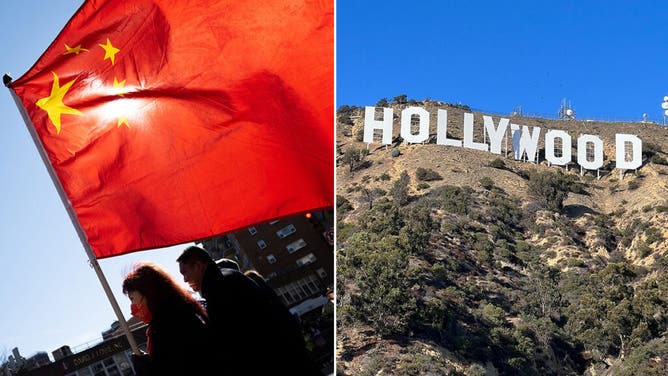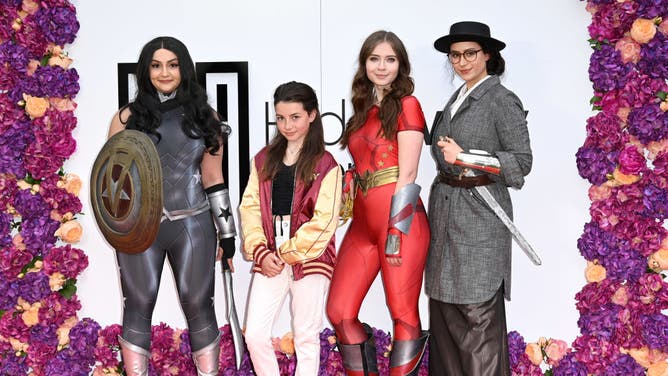China's Hollywood Cash Spigot Running Dry
Movie studios had a cozy relationship with Communist China, one captured in the exhaustive 2022 book “Red Carpet: Hollywood, China and the Global Battle for Cultural Supremacy.”
Hollywood sanitized its big-budget films for Chinese consumption, and the country’s movie goers rushed to see what the American dream factory conjured up next. Ring, ring went the Middle Kingdom’s cash registers, and film studios Hoovered up all that cash.
That Hollywood story may be heading for a sad ending, what with “Avatar: The Way of Water” under-performing in spectacular fashion. It’s the latest sign that the Hollywood-China love affair has hit the rocks.

China and Hollywood: a love affair on thin ice. (Getty Images)
For years Hollywood, Inc. did whatever it took to gain access to Chinese movie houses (and appease the nation's censors). If that meant movies with heroic Chinese figures added for no discernible reason, so be it. Subplots even mildly critical of Chinese culture also got the heave ho.
One telling example? An image of Chinese citizens drying their laundry outdoors didn’t make the final cut in “Mission: Impossible III” because it conveyed the wrong image.
Actors, in turn, kept their activist mouths shut about China’s atrocious human rights record. The same stars who weigh in on every third news headline (Kids in cages! Lock him up!) went silent as Muslim Uyghurs languished in Chinese concentration camps.
The most embarrassing example? John Cena’s humiliating apology video to China for suggesting Taiwan was a separate, autonomous nation.
Those sacrifices were worth it, movie studio executives told themselves, because the payoffs could be massive. Take two examples:
2019’s “Avengers: Endgame” earned a staggering $858 million in the U.S., with $629 million coming in from Chineses theaters, according to BoxOfficeMojo.com.
The 2018 reboot of the “Tomb Raider” franchise floundered stateside, earning just $58 million. That movie’s Chinese haul? A cool $78 million, turning the film from a flop to one that nearly sparked a sequel.
China Lessened Its Need For Hollywood Imports
Except something unexpected happened along the way. No, Hollywood didn’t grow a spine and stop censoring its content for a foreign market. Instead, China learned from American filmmakers how to make glossy, popcorn movies themselves, lessening the need for U.S. imports.
Now, Chinese film studios uncork big, loud action films that look close enough to their American cousins to satiate Chinese citizens. And, as a result, the U.S. imports stopped drawing big crowds.
Take “Wonder Woman 1984,” the 2021 sequel which got caught in the global pandemic stateside. The film earned a measly $25 million in China, a far cry from the original film’s Chinese haul - $90 million.

Wonder Woman 1984. (WireImage)
More recently, U.S. films like “The Batman” flopped in China, earning just $25 million.
And now, “Avatar: The Way of Water” is feeling the pinch. The movie, which needs to corral north of $2 billion globally to be considered a success, opened to just $56 million in China. The 2009 “Avatar” for comparison’s sake, earned $261 million in total.
Those faltering numbers don’t include an increasing amount of American films which weren’t allowed in China, including Marvel’s “Black Widow” and “Doctor Strange in the Multiverse of Madness.”
Where does that leave American films as we head into 2023? Will studios stop tweaking their product to appease Chinese censors, swallowing their dignity along the way?
More importantly, will U.S.-based filmmakers start telling the truth about modern China, from its free speech oppression to the horrific treatment of its Uyghur population? That's a film many people need to see.